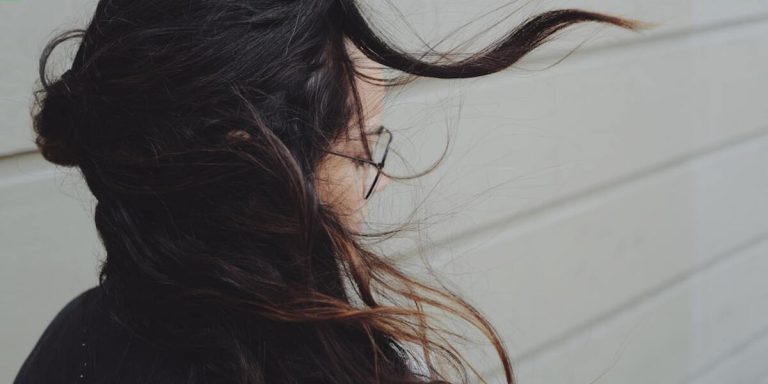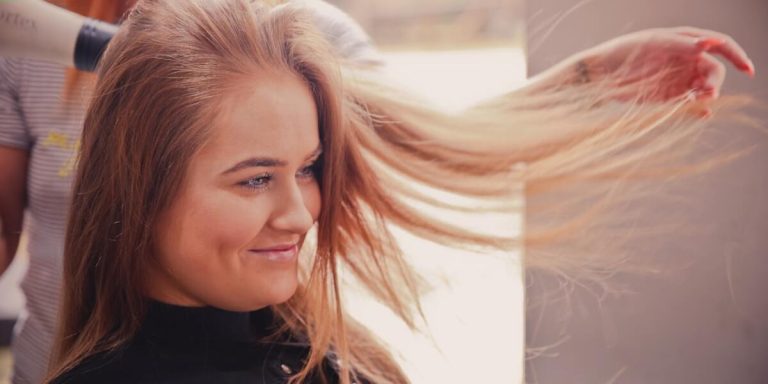Does Dandruff Shampoo Cause Hair Loss: An Insightful Analysis
The intrigue surrounding the question, “does dandruff shampoo cause hair loss,” is not without reason. A considerable number of people have observed a potential link between using anti-dandruff shampoos and experiencing increased hair fall. It’s an alarming connection that warrants critical analysis.
In order to address this concern, we need to dig deeper into understanding the composition of these shampoos and how their ingredients interact with our scalp health and hair growth cycles. This blog aims to provide an insightful look at whether your choice in dandruff control could be inadvertently contributing towards any unwanted thinning or balding.
Did you know?
Contrary to popular belief, dandruff shampoos might not actually cause hair loss. However, certain harsh ingredients in some of these products can strip your scalp and hair of essential oils, thereby potentially leading to breakage and temporary thinning.
Understanding the Link Between Dandruff and Hair Loss
Dandruff has always been widely associated with hair loss. However, it’s crucial to debunk myths and understand the real relationship between these two conditions in relation to your query – does dandruff shampoo cause hair loss.
Firstly, dandruff by itself is not a direct trigger for hair damage or shedding. Its main effect pertains to scalp health as it causes itching and flaking that can be bothersome but usually isn’t severe enough to lead directly to baldness. Yet if an individual scratches excessively due to constant itchiness brought on by dandruff, physical trauma may result which inadvertently harms the follicles leading potentially, albeit indirectly, towards thinning tresses over time.
To determine if dandruff shampoos contribute to this problem, scrutinize the ingredients list before jumping to conclusions. Although anti-dandruff formulations are typically designed for sensitive scalps, they may sometimes include certain harsh chemicals for maximum effectiveness against persistent flakes. These substances could excessively dry out hair, making it brittle and more prone to breakage than healthy strands.
In conclusion then yes: while neither condition (dander nor its specific treatment) should ideally induce alopecia per se under normal circumstances- each holds potentialized risks nevertheless when stretched beyond boundaries intended originally upon their prescription/design respectively hence warranting caution indeed during usage & subsequent follow-up thereof.
Examining Ingredients: Are They Harmful for Hair Follicles?
In our quest to understand if there’s a connection between dandruff and hair loss, one area that needs careful examination is the ingredients found in most anti-dandruff shampoos. The question we’re confronted with often: “Does dandruff shampoo cause hair loss?” A justified concern for many as both issues are closely linked.
A major ingredient present in several commercially available anti-dandruff shampoos is ‘zinc pyrithione’. Known for its fungistatic (that which slows down fungus growth), it effectively reduces dandruff-causing microbes on your scalp. However, some studies suggest zinc pyrithione might interrupt the natural cycle of hair follicles leading to increased shedding or thinning.
Next on this list would be ‘ketoconazole’, another potent component used because of its antifungal properties. While generally regarded safe by dermatologists worldwide, an excessive number could potentially cause alterations in texture and volume over time – but linkages remain largely unproven till today.
‘Selenium Sulfide’ also features prominently within the composition chart of many such products – chosen again due to their effectiveness against fungal proliferation on human scalps. Too much exposure though has been speculated around potential harm towards overall scalp health causing unwanted stress upon delicate follicle structure thereby resulting possibly into subsequent losses.. But science still hasn’t reported anything substantial backing these theories yet until 2023!
Distinguishing Myths from Facts: Does Anti-Dandruff Treatment Weaken Hair?
Myths and facts about hair health often intermingle, creating confusion for many people. Key among these controversial statements is the question – “does dandruff shampoo cause hair loss?” Understanding this query requires in-depth awareness of what dandruff is, how it interacts with your scalp, and its role in contributing to potential hair loss.
Firstly, let’s broach the subject of dandruff itself. Dandruff is a condition characterized by flaking skin on the scalp. While it might seem like a trivial inconvenience at first glance—it carries more profound implications than mere cosmetic worry.
Let us clarify—modern shampoos designed specifically against combating pesky flakes contain ingredients including zinc pyrithione (ZPT), ketoconazole amongst others which aim firmly at restoring natural balance within one’s head back eliminating fungal growth responsible behind causing annoyance named ‘dander’.
Hormonal Imbalances and Their Impact on Hair Health
Hormonal imbalances are often overlooked when looking for the cause of hair loss, but they play a significant role in maintaining healthy and strong strands. These imbalances can be triggered by several factors; however, it’s crucial to debunk the myth around one commonly used product – dandruff shampoo.
Contrary to some misbeliefs circulating on various platforms, using dandruff shampoos does not directly contribute to hormonal imbalance or subsequent hair loss. Dandruff shampoos principally aim at dealing with a flaking scalp rather than altering hormones that could potentially disrupt follicle health.
Nonetheless, this doesn’t imply total immunity from hair shedding while using such products. Many users have reported increased fallout after starting their regimen with these shampoos – causing alarm and fostering misconceptions about these products inducing hormone-related baldness patterns. But what is really happening?
The increase in perceived thinning may simply reflect an initial heightened shed as your head adjusts to new care habits.
It’s important to factor external influences like stress levels and dietary practices along with usage of any specific therapeutic aid such as dandruff shampoo while diagnosing reasons behind deteriorating mane health due unruly hormones.
Understanding how disparate elements work synchronously should provide insights into why you might experience certain changes throughout your journey towards more vibrant tresses despite no clinically proven link between use of anti-dandruff solutions and disruption of body’s finely tuned hormonal symphony leading up-to hair continuity troubles in 2023.
Investigating Androgen Effects on Scalp Conditions Leading to Hair Loss
Androgen, a hormone associated with male traits and reproduction, plays a significant role in hair growth. It’s an essential element to consider when investigating the conditions impacting scalp health leading to hair loss.
One condition often related to hormonal imbalances includes dandruff. The recurring question is: does dandruff shampoo cause hair loss? To provide clarity on this issue, it is crucial first to understand how hormones like androgens affect our scalps.
Hormonal imbalance can exacerbate various scalp issues that ultimately lead to more prominent cases of alopecia (hair loss). Androgen sensitivity varies across people; for some individuals, higher levels catalyze rapid hair thinning or baldness patterns resembling those found commonly in males – termed as Androgenic Alopecia.
Although circumstantial evidence might suggest that using anti-dandruff shampoos could result in increased strands on your comb post-shower, no scientific research has definitively linked these two factors directly yet. Anti-dandruff shampoos primarily focus on mitigating flaky skin caused by yeast-like fungus Malassezia present naturally on our scalps but overactive under certain conditions – such as excessive oil production instigated potentially due to heightened androgen activities.
The Role of Stress-Induced Cortisol in Exacerbating Scalp Issues
In the vast discussion about hair loss causes, one noteworthy topic is the role stress-induced cortisol plays in escalating scalp issues. Various studies have highlighted that hormones play a pivotal part in maintaining healthy hair. However, any imbalance could exacerbate existing problems or even trigger new ones.
Let’s delve into how this mechanism works and its connection with dandruff shampoo.
Stress provokes our body to release several hormones – one of which is cortisol. This particular hormone prepares us for stressful situations but an over production can lead to numerous health complications including adverse effects on our scalp and hair health.
Suddenly you notice your favorite ‘calming’ dandruff shampoo isn’t delivering results anymore? It might not be responsible entirely; instead it’s probably exacerbated by high-stress levels influencing your overall hormonal balance. While many wonder “does dandruff shampoo cause hair loss”, few understand that sometimes these symptoms may actually stem from their stressed lifestyle rather than product use itself.
When there are excessive levels of cortisol circulating in your system, this will potentially manifests as oiliness, itchiness or flakiness of the scalp directly disrupting natural PH levels and creating favorable conditions for fungal growth related complaints like dandruff .
This phenomenon subsequently forms a vicious cycle: Poor scalp condition supports increased chances for bacteria/fungal invasion again leading back towards itching/dryness…and thus more scratching which then leads to potential physical damage causing eventual hair fall out!
Nutritional Deficiencies as Hidden Culprits of Alopecia
Nutritional deficiencies are often overlooked as potential causative factors in hair loss, or more specifically, Alopecia. While most people may jump to conclusions about their preferred dandruff shampoo causing hair loss, they scarcely consider that the real perpetrators might be lurking on their plates. Poor nutrition has a direct impact on our follicular health as it interferes with normal yet crucial biological processes necessary for healthy and robust hair growth.
Certain nutrients play critical roles when it comes to sustaining our mane’s vitality; any shortage of such can lead to unwanted conditions like thinning strands and bald patches otherwise known as Alopecia. Essential amino acids from proteins ensure structure strength while vitamins like A and C aid collagen production – an important protein for skin resilience where our hairs embed themselves.
Additionally, minerals such as iron support red blood cells which transport oxygen throughout the body including vital nourishment delivery right onto each individual scalp cell ensuring optimal functionability. Hence, inadequate intake of these essentials can trigger patterns akin to alopecic symptoms rather than your innocuous bottle of anti-dandruff shampoo taking undeserved blame.
Revealing the Importance of Vitamins and Minerals for Healthy Locks
While exploring the mysterious world of hair loss, it’s crucial to understand that your daily nutrition plays an all-important role. One might wonder: does dandruff shampoo cause hair loss? The answer may not always be straight forward as there are multiple factors at play.
Vitamins and minerals form the foundation for a healthy scalp environment conducive to strong follicles. They powerfully counteract numerous causes of alopecia, thereby unveiling their significance in maintaining lush locks.
Consider vitamins B7 (Biotin) and B3 (Niacin), they’re like superheroes for your strands! These vitamin heroes help renew cells in our body including those on our scalp while promoting blood circulation which essentially nurtures and strengthens your tresses from within.
On another note, Iron deficiency can lead towards unanticipated consequences such as brittle or thinning hair; sometimes even culminating into complete baldness if left unchecked over time!
Don’t forget about proteins either – they are vital building blocks ensuring each strand receives adequate nutrients thus preventing breakage.
Still thinking “does dandruff shampoo cause hair loss”? Let’s dive deeper by considering Zinc – this mineral is renowned for its potent anti-dandruff properties mainly due to its ability curb yeast production. However remember too much zinc could potentially tip balance off negatively affecting absorption other important elements leading unwanted shedding!
Addressing Protein Intake: Building Blocks Essential for Strong Strands
Now you’re probably wondering – “does dandruff shampoo cause hair loss”? In 2023, it’s safe to say that this question has got both scientific attention and mainstream curiosity.
Scientifically speaking, there is no direct relation between protein consumption and effects of anti-dandruff shampoos on your scalp health or potential triggers for baldness. However, inadequate protein intake can certainly induce brittle strands susceptible to damage by harsh chemical agents found commonly in many commercial personal care products.
Inadequate dietary uptake of proteins leads not just to weak muscle mass but also affects your mane significantly due to insufficient keratin production – an important fibrous structural protein essential for strong follicle resilience. This makes them vulnerable even during routine grooming practices like combing or washing using any type of product including dandruff shampoos potentially causing breakage resulting into noticeable shedding.
To address concerns about diets with low protein levels causing unwanted hair loss:
1) Focus on consuming more lean meats: Proteins derived from chicken breast, turkey are great sources apart from being delicious additions into meals.
Conclusion
In the grand scheme of things, fretting over whether or not does dandruff shampoo cause hair loss is like worrying if your morning cup of joe will stunt your growth. The truth lies elsewhere and in understanding that individual health factors, diet choices and genetic predispositions are major players when it comes to hair loss issues.
So instead of jumping on bandwagons based on hearsay, we encourage you to delve deeper into our website. Here you’ll find a trove full of reliable information addressing various causes behind hair loss – empowering you with knowledge so that no misleading notion can sway you off track again! After all, knowing is half the battle won!







